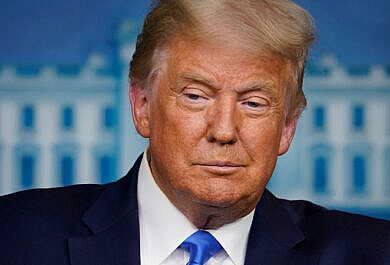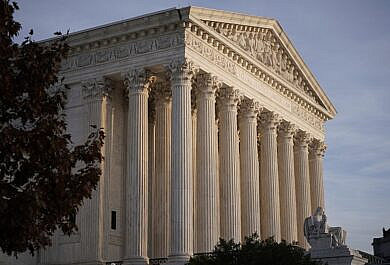Special Counsel John Durham issued a withering assessment of the FBI’s “seriously flawed” handling of the Trump-Russia investigation.
Summary
Special Counsel John Durham issued a withering assessment of the FBI’s “seriously flawed” handling of the Trump-Russia investigation during the 2016 election in his final 316-page report after investigating the origins of what was known as the “Crossfire Hurricane” probe since 2019.
- “The objective facts show that the FBI’s handling of important aspects of the Crossfire Hurricane matter were seriously deficient,” Durham wrote in his report. He went on to condemn the FBI for using “raw, unanalyzed, and uncorroborated intelligence” and lacking “actual evidence” to even open an investigation into Trump.
- “It is the Office’s assessment that the FBI discounted or willfully ignored material information that did not support the narrative of a collusive relationship between Trump and Russia,” Durham concluded.
- Durham, who was first appointed by then-Attorney General Bill Barr in May 2019, lambasted the FBI for treating Trump differently than other politically sensitive inquiries that were being conducted at the same time, including several probes into Hillary Clinton.
- One example of this was highlighted by Reuters: “Clinton and other officials received defensive briefings about being the possible targets of foreign interference, whereas Trump received no such briefing before the FBI opened probes into four members of his campaign.” Durham concluded, “The Department and the FBI failed to uphold their important mission of strict fidelity to the law.”
- The Wall Street Journal included another example of this double standard: “The bureau didn’t aggressively pursue evidence of two instances in which foreign governments were potentially planning to contribute to Hillary Clinton’s presidential campaign to gain influence. The speed with which the FBI opened the investigation into the Trump campaign “based on raw, unanalyzed, and uncorroborated intelligence also reflected a noticeable departure from how it approached” those other allegations, [the Durham report] said.”
- Durham went on to fault FBI supervisors for their “serious lack of analytical rigor” and reliance on “investigative leads provided or funded (directly or indirectly) by Trump’s political opponents.” In contrast, the FBI proceeded with caution into its investigations into Clinton.
- Durham’s investigation was extensive. The Special Counsel’s office conducted more than 480 interviews, reviewed six million pages of documents, served more than 190 subpoenas, and executed seven search warrants.
- The report takes several pages to spell out the seriousness of criminal charges, the high bar of securing a unanimous jury verdict, and the limits on what can be admissible in court to explain why the investigation is ending without any additional indictments.
- The office made sure to point out, “Moreover, the law does not always make a person’s bad judgment, even horribly bad judgment, standing alone, a crime. Nor does the law criminalize all unseemly or unethical conduct that political campaigns might undertake for tactical advantage, absent a violation of a particular federal criminal statute.”
- “Finally, in almost all cases, the government is required to prove a person’s actual criminal intent – not mere negligence or recklessness- before that person’s fellow citizens can lawfully find him or her guilty of a crime. The Office’s adherence to these principles explains, in numerous instances, why conduct deserving of censure or disciplinary action did not lead the Office to seek criminal charges.”
- “I, and much more importantly, then American public have been victims of this long-running and treasonous charade started by the Democrats — started by Comey,” former President Donald Trump said to Fox News. “There must be a heavy price to pay for putting our country through this.” Trump called the investigation “a total disgrace” and added “public anger over this report is at a level that I have not seen before.”
![]()
- The New York Times downplayed the report’s findings as revealing “little substantial new information” and lacking “the kinds of blockbuster revelations accusing the bureau of politically motivated misconduct that former President Donald J. Trump and his allies suggested Mr. Durham would uncover.”
- Axios highlighted Durham’s criticism of the Crossfire Hurricane investigation for causing “severe reputational harm” to the Bureau but noted the lack of indictments fell short of what Trump has referred to as the “crime of the century.”
- Politico’s takeaways included Durham’s defensive comments in the criticism seemingly preempting GOP disappointment at the lack of criminal convictions related to FBI misconduct. Additionally, Politico predicted Durham’s criticism of the Bureau’s surveillance authority could lead Congress to allow it to expire when it comes up for renewal in December.
![]()
- The FBI responded to the report in a statement to Fox News: “The conduct in 2016 and 2017 that Special Counsel Durham examined was the reason that current FBI leadership already implemented dozens of corrective actions, which have now been in place for some time. Had those reforms been in place in 2016, the missteps identified in the report could have been prevented.”
- The New York Post covered the reaction on Capitol Hill. Congressional Republicans called for “consequences” and vowed to hold the FBI “accountable.” Judiciary Committee Chairman Jim Jordan said on Monday that he had invited Durham to testify on his report next week.
- National Review highlighted one revelation from the report: that the FBI did not give enough consideration to the possibility that the Steele Dossier was Russian disinformation. Despite the FBI’s awareness of flaws and inconsistencies in the Steele Dossier, “the FISC was never advised of information that very well may have affected the FISC’s view of Steele’s primary sub-source’s (and Steele’s) reliability and trustworthiness,” Durham wrote.
© Dominic Moore, 2023






